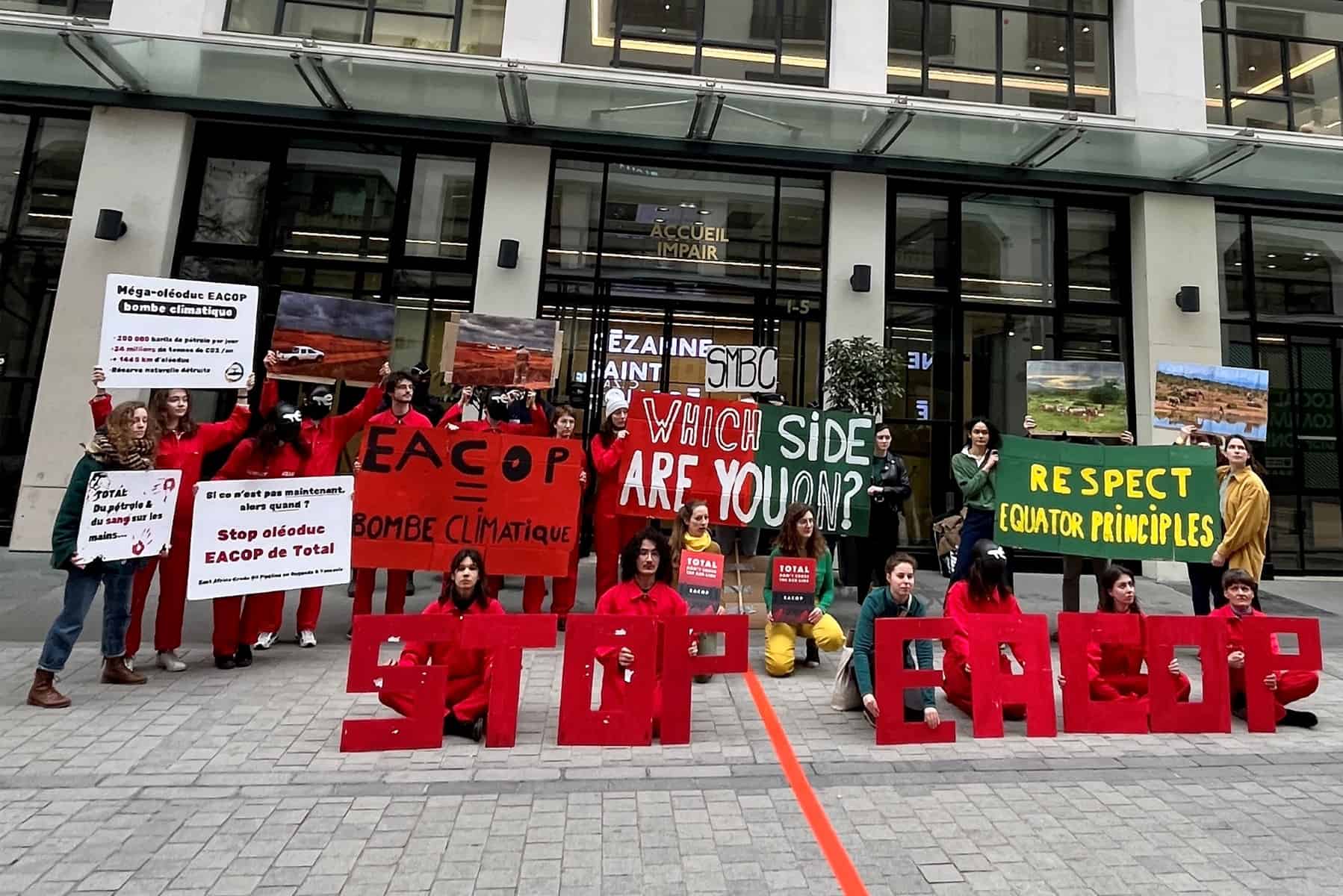Paris, France– Activists in Paris Wednesday called out two banks involved in the financing of a controversial fossil fuel project in East Africa, part of a coordinated protest across a dozen cities worldwide.
About 30 young campaigners from the Stop Total collective demonstrated in front of the French offices of Japan’s Sumitomo Mitsui Banking Corporation (SMBC) and Britain’s Standard Chartered.
They demanded the banks pull back from the East Africa Crude Oil Pipeline (EACOP), a 1,443-kilometre (900-mile) heated pipeline being jointly developed by France’s TotalEnergies and the China National Offshore Oil Corporation (CNOOC), along with the state oil companies of Uganda and Tanzania.
TotalEnergies owns 62 percent of the company which holds the license for the pipeline. SMBC are financial advisors to EACOP’s operators, together with South Africa’s Standard Bank.
Standard Chartered has reportedly expressed interest in financing the project, which is expected to cost $10 billion, including the development of oilfields.
“We are here to push these banks into disclosing internal reports, which we know have been drafted, assessing the environmental and societal risks of the EACOP project,” said Ulysse Vassas, the member of Stop Total who coordinated the international day of action alongside NGO 350.org.
“They say that EACOP is aligned with the Equator Principles, but we have no proof.”
The Equator Principles are a set of guidelines requiring banks to take into account the social and environmental impact of projects they finance. SMBC and Standard Chartered are among the 138 signatories of the voluntary scheme.
Drawing a red line
A report by three NGOs in July highlighted the non-compliance of EACOP with a host of criteria set forth in the Equator Principles, challenging the commitment of the project’s financial advisors and lenders.
Contacted by AFP, Standard Chartered said it “cannot comment on individual clients.” SMBC has not responded to a request for a comment.
The pipeline project has run into strong opposition from rights and environmental campaigners who say the oil fields being developed around Lake Albert threaten the region’s fragile ecosystem and the livelihoods of tens of thousands of people.
Positioned in front of the bank, demonstrators fashioned a red line made of sticky tape to symbolize the Equator Principles.
“Which side are you on?” said a sign held by one of the protestors.
Twenty-four other major banks have already committed not to support the EACOP project, according to 350.org.
TotalEnergies told AFP that it was “doing all it can to ensure it is exemplary in terms of transparency, shared prosperity, economical and social progress, sustainable development, environmental responsibility and respect for human rights.”

